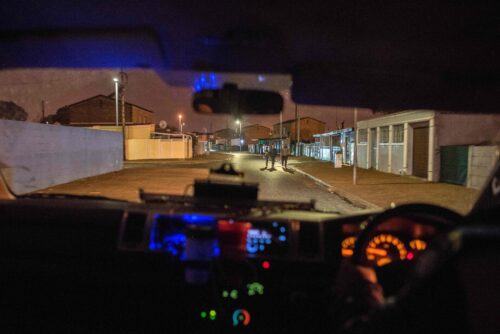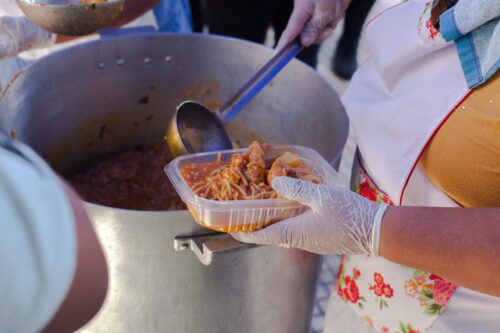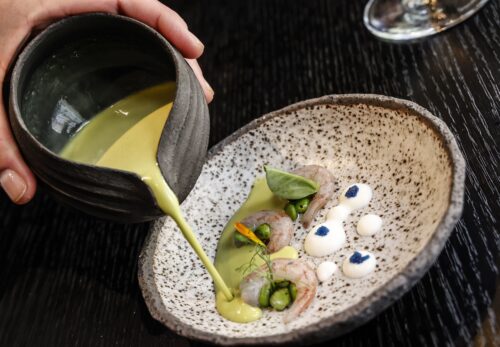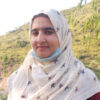Poems of Witness and Possibility: Inside Zones of Conflict
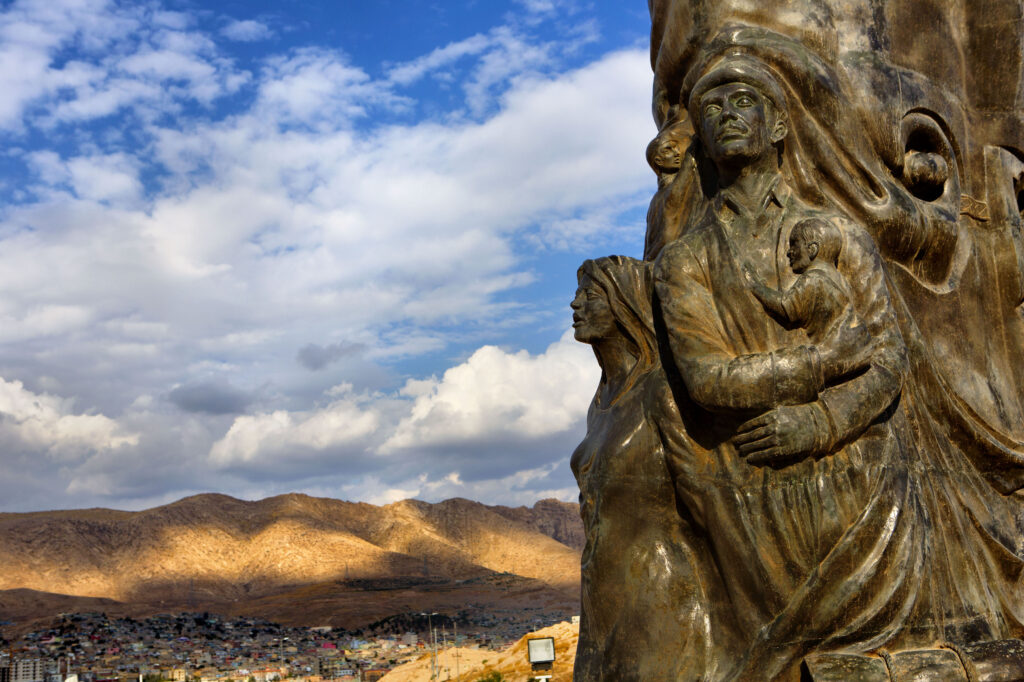
In July 2023, SAPIENS put out a call for poems from within “zones of conflict.” We asked authors to share their insights into “what brought humanity to this point [in history] and anthropology’s role in those processes.” We sought poems that spoke to people’s intelligence, relationships, and other resources to craft alternate futures.
We were moved by more than 50 submissions from people in diverse communities and regions around the world. Many authors are anthropologists or students in anthropology. Others are scholars in related fields, educators, or activists.
This collection illuminates how people are not defined by the zone of oppression they inhabit. They are known for their creativity, memories, hopes, love, and truths. These are all alive amid war and degradation.
Yet the myriad experiences of invasion people face are “tangible, material atrocit[ies],” as anthropologist Mohamad Junaid has emphasized in relation to the Indian occupation of Kashmir. They are not theoretical or abstract.
Poets in this collection speak to the forces that subject bodies and environments to violence—from militant attacks in Indonesia and Sri Lanka, to extreme environmental degradation in the Niger Delta region, to a state-influenced civil war in Manipur (Northeast India).
People bear these traumas. Violent, exploitive systems are reproduced, made alive by concrete actions. Those running these systems aim to dehumanize people and reduce them to landless, exploitable entities. But through the arts and local and global solidarities, people push back—as we experience poets doing in this series.
Anthropology’s legacy and influence are entangled with these zones of conflict. Today while many scholars emphasize bearing witness, others reach for more encompassing ways to counter systemic violence. For instance, Whitney L. Duncan, a poet-anthropologist featured in this collection, encourages not only witnessing but accompaniment. To her, this means “to hold space and take solidarity action in ways that challenge intractable systems of oppression.”
We invite you to engage with these anthropologists and scholars from zones of conflict around the globe. Perhaps you will discover a necessary phrase, counternarrative, or everyday moment that illuminates your own situation. Ultimately, alongside these poets, may you feel the significance of our shared humanity.
The world cannot be built (or re-built) apart from everyday moments. Just as devastation comes as “tangible” and “material,” as Junaid points out, visions and dreams can bring alternate possibilities.
In “Strange Future,” Nigerian eco-activist and cultural worker Ojo Taiye doubts the tricky nature of hope while feeling his heart begin “to dream again”—imagining “any tree” as a ladder.
Yet as the “earth feels hotter today” and “carcasses/Of goats and sheep line the roadsides,” the speaker of the poem “sieve[s] through/The long silence for the songs my grandmother taught me.” In this poem, we as readers feel generations navigating the damage and threats of human-caused climate change and environmental racism in Nigeria.
In Manipur, a state in the Northeast of India, generational trauma and structural violence have erupted as an ethnic conflagration. The poem “A Mausoleum of Our Everydays” by doctoral student Haidamteu Zeme Newme shows how linear time rolls out “like children playing hopscotch.” We also meet other community members: “Mothers wrapped in secondhand Sunday best” and “my grandfather climbed a rickety ladder.”
But in these traumatic times, the strength of generations is tested: “Tired we are/Returning/Anywhere and Everywhere/Children of our unscripted ancestors.” The search for belonging to legitimize her community’s past—that of the Zeme or Zeme Naga tribe—in present-day India has been obfuscated by colonial forces and relics.
In a documentary fashion, Zeme Newme interweaves life-stealing trauma with quotidian moments: “They trip among numerous bodies in woven shrouds/Huddled around a raging fire … Gunshots ring out gayly/Thudthudding as a spirit-filled church/Bidding adieu to inspiration.” The author writes that her poem reflects people’s anxieties “encased between hopes of a better future, violence of the present, and ambiguities of the past.”
“Peace is always on the way if we are sincere toward the hurt,” writes Mesak Takhelmayum.
The poem “Between the Lines” also reaches for a better future. Educator Josh Yarden writes from an international school in Israel where the student body includes Jews and Palestinian Arabs from Israel, and attendees from 25 other countries. [1] [1] Note: Yarden wrote this poem prior to 2023. International and local borders are witnessed as “Lines down/the middle/in the sand/by the sea … Border fences/barriers and a wall.”
The speaker of the poem presents questions that shake what “knocks out our/lines of communication.” He asks, “What if we resist the call/to put our lives on the line/create a lifeline together”? Accounting for the excruciating costs and lessons of war, “seekers of peace” are invited to “meet/between the lines” while urged to “write on” because “the next line/is yours.”
This urgent invitation to act and form solidarities across borders also weaves through anthropologist Whitney L. Duncan’s poem titled “Expert Witness Reviews Exhibits for Asylum Proceedings, Franco-González Class Member.” The speaker (in some form) witnesses the asylum-seeker lying “in streets, face upturned to sky—” and responds: “if I could lie with you, I’d feel.” This act of care tracks the sensory experience of what might have traumatized the immigrant into a mental health crisis: “caterpillars writhe in silk tents/you hear through/cables they planted in your head.”
As “expert witness,” the poem’s speaker translates for legal documents: “I type tortures—.”
Duncan’s poem simultaneously disrupts many of our assumptions as readers and re-plants us in new understandings.
Such solidarities between anthropologists and interlocutors must be cultivated “even in the face of movement and displacement,” writes anthropologist Sanjna Yechareddy from India, who has sporadic communication with Sri Lankans she spent time with in 2019.
In her poem “08.03.2019,” she recalls when she and the older Muslim couple she was with (“uncle” and “aunty”) were stopped at a checkpoint in Sri Lanka. Having intended to study women’s groups post–Sri Lankan civil war (1983–2009), she had arrived just a month after the Easter Sunday suicide bombings of Christian churches by ISIS, a extremist organization. Yet she had no ID except an expired university card.
Meanwhile, a “guard’s eyes/bore into aunty’s ID card/her piece of paper/absorbs suspicion gracefully.” We viscerally feel echoes of a violent history surging through this interaction. After the “bladed lips” of the post finally open to allow the group to pass, aunty says, “Maybe we look like terrorists.” Her words speak volumes about the bombings but more specifically about Islamophobia, even as she expresses them with a “soft laugh.”
Conflicts are often said to be “ethnic” or “religious,” yet neither is exactly true—and stakeholders often frame tensions differently. We are forced to ask ourselves what these labels might hide and what a wider lens might reveal. Colonialism and neocolonialism, imperialism, global capitalism, and drug-related violence, for instance, often remain hidden in the background. But in many cases, these forces led to the incitation of differences that previously did not issue conflict and result in uprisings.
Another poet-anthropologist Moh. Faiz Maulana shares his frustration with people “weaving pain and sorrow in the name of religion.” In his poem “At the Intersection of Sarinah Plaza, Thamrin Street” about the 2016 bombing in Jakarta, Indonesia, by extremist militants, we’re at the intersection where “suddenly grief falls heavier/than laughter.”
The suicide bombers who wrought such murder and injury elicit the closing stanzas: “And death/Is the path back home to heaven—or hell, isn’t it?/While we have hidden,/Imprisoned within religion’s embrace.”
The poet emphasizes that such violence does not reflect spirituality, the core of which is to “love all of God’s creations.” In a likewise urgent pursuit of core meanings and change, queer activist and poet Mesak Takhelmayum, from Manipur, writes, “Peace is always on the way if we are sincere toward the hurt.”
All the poems in this collection make space for being “sincere toward the hurt.” And they have much to teach us. In Takhelmayum’s poem “Fishing for Dust,” a fisherwoman and her child cross the beautiful Loktak Lake, the largest freshwater lake in South Asia. In this allegory, the child pleads for a lullaby while the mother asks her child “to not fall asleep or the waves may take him.”
Amid the unrest in the region, Takhelmayum says the “beauty we have to offer becomes reclusive. … The people of this land are numb to the beauty, for it doesn’t serve the purpose of admiration like it should.” As in the poem, “We’re listening to the sweetest lullaby, and yet it demands us to not fall asleep.”
Another child receives a lullaby in this collection, but the singer crosses other difficult waters than those of Manipur. Indigenous anthropologist Jenny L. Davis (a citizen of the Chickasaw Nation) hums a song for the remains of an infant who is in the osteological teaching collection of the anthropology department at her university—a situation archaeologist Kisha Supernaut (Métis/Papaschase/British) has called the “incarceration” of ancestors.
In “Infant, Name Once Known,” the speaker removes “someone’s child/from the wires, wingnut, and metal rod/that had held them on display/for more than half a century.” We feel each move in this heartbreaking honoring. Davis electrifies the injustices and erasures of settler-colonialism in the U.S. by saying she will not give the infant a name but she, at least, will “recognize/that you once had one.”
In “Bila Mwili” by historian Alma Simba, ancestors are also honored—and beckoned. Based in Dar es Salaam, Simba reminds readers how “remembrance is a daily practice.” She writes: “The dead are still in the surrounding environment.”
Body turns to ash, but “the memories that stay reverberate forever/before emptying into the forgetting.” Such remembrance is “an echo shouting/for you, calling you home.”
These poets collectively call ancestors home to their hearts. They also warn of passivity and the inhumanity of linear narratives and narrow lenses in the face of violence. Some even forge solidarities across borders and differences that may nourish peace.
Engage these poets as they speak of their worlds, histories, and communities. Listen as they remind how beauty, creativity, and love restore the soul—and how everyday moments are both anchoring and fragile. In reading, may you begin, as Ojo Taiye beckons us, “to dream again” and imagine “any tree” as a ladder.
Editors’ note: We have removed from this collection a second planned poem by Ojo Taiye, “There Is Still Hope Here,” due to a lack of proper attribution of borrowed phrasing from another poet’s published work. We also have deleted the paragraphs in this introduction that were about Taiye’s second poem.
